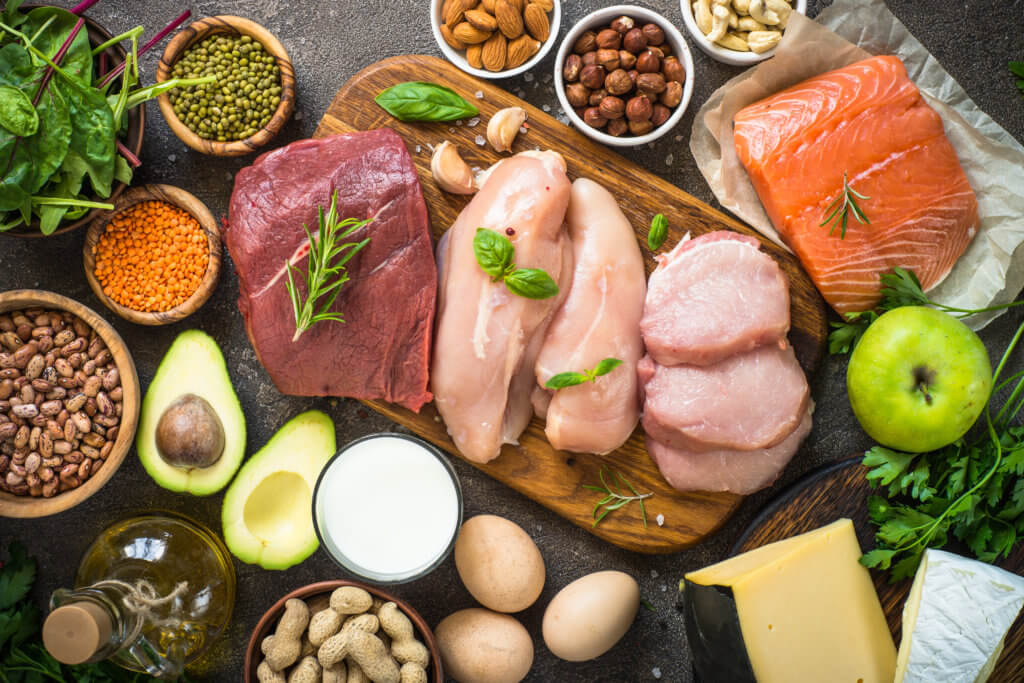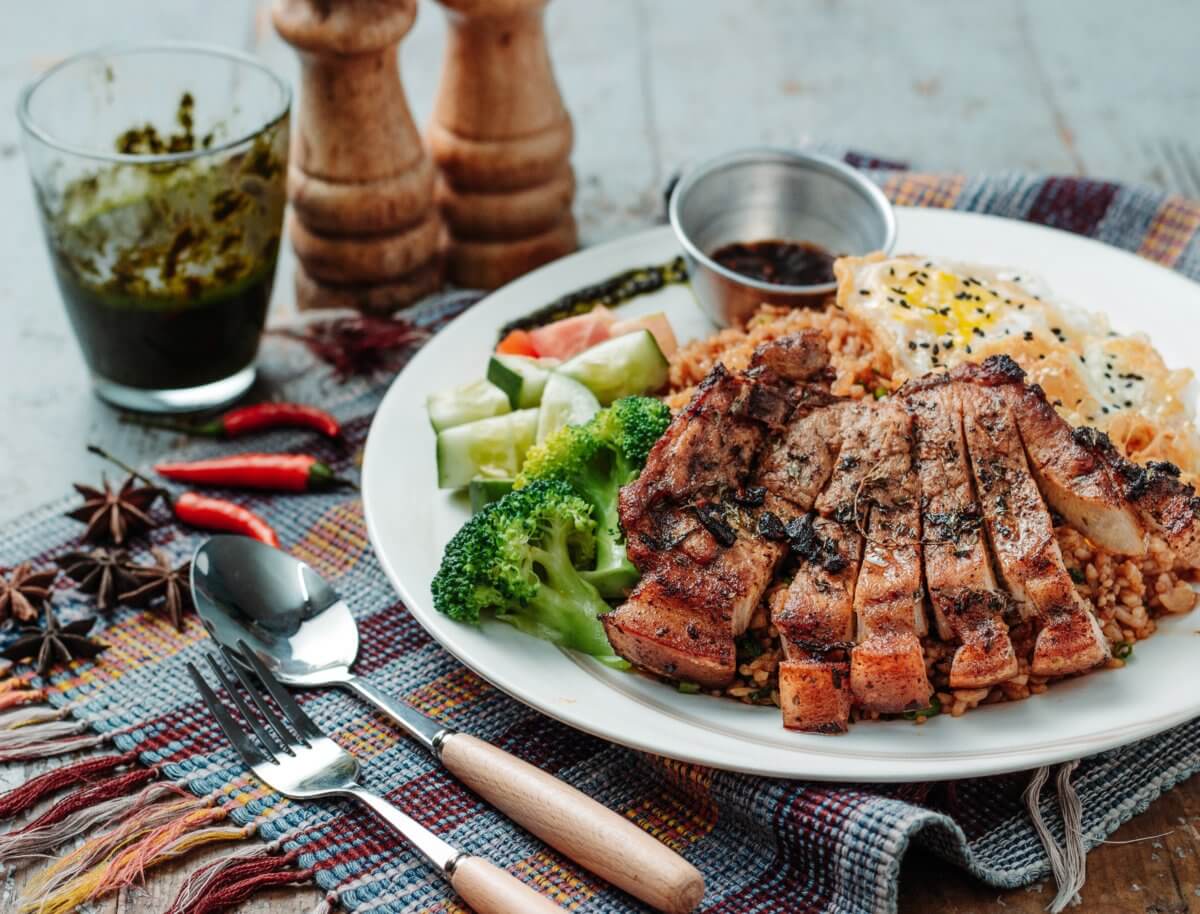LEEDS, United Kingdom — Men and women may be putting themselves at a greater risk of serious hip injuries by avoiding meat, a new study reveals. Scientists at the University of Leeds report both men and women following a vegetarian diet face a 50-percent greater risk of a hip fracture in comparison to others who regularly eat meat.
Previous reports have pointed to women who follow a vegetarian diet experiencing an elevated risk of hip fracture, but the exact reasons for this trend have remained unclear. Meanwhile, projects focusing on the impact of a vegetarian diet on men have largely been small in scale and yielded inconclusive findings.
So, the team analyzed a dataset encompassing over 413,914 people (both men and women). The resulting insights provide the first indication that vegetarian men also face a greater risk of hip fracture than men who regularly eat meat. This work has also identified some specific factors that may be putting vegetarians – regardless of gender – at increased risk of hip fracture.
Study participants were originally recruited between 2006 and 2010 (in conjunction with the UK Biobank project) and provided details on their dieting information. The team used this data to group people into various cohorts: a regular meat eater consuming meat five or more times a week, an occasional meat eater consuming meat fewer than five times per week, pescatarians eating fish but not meat, or vegetarians consuming dairy foods but not fish or meat.
Data for each person was linked up with their hospital records, and all hip fracture cases were recorded during the follow-up period in 2021.

Among all (413,914) study participants, there were 3,503 hip fractures, accounting for an overall incidence rate of less than one percent (0.8%). While the overall risk of suffering a hip fracture was low, the relative risk between vegetarians and regular meat eaters was actually quite large.
Study authors report:
- Vegetarians had a 50-percent greater risk than regular meat-eaters, regardless of sex.
- There was no difference in risk between occasional and regular meat-eaters.
- Pescatarians had a slightly greater risk (8%) than regular meat-eaters, but this was determined to be non-significant.
After calculating how these relative differences may translate to real-world cases, study authors predicted an average of 6.5 regular meat eaters and 6.5 occasional meat eaters would experience a hip fracture, as well as seven cases among pescatarians and 9.5 cases among vegetarians.
“Hip fractures are a growing problem in an aging society, and can trigger debilitating health conditions and a loss of quality of life,” says James Webster, a doctoral researcher in the School of Food Science and Nutrition who led the study, in a media release.
“This study shows that whilst vegetarians face a greater risk of hip fracture than meat-eaters – at 50% – this translates to just 3 more hip fractures per 1000 people over 10 years. The health benefits of a vegetarian diet, including a lower risk of cancer and cardiovascular disease, may still outweigh any increases in hip fracture risk.”
“Our analysis suggests that low BMI may be a key factor in why their risk is higher,” Webster continues.
“Additionally, vegetarians were about 17% less likely to meet protein recommendations than meat-eaters. So, important messages from our study are that vegetarians need to ensure they are getting a balanced diet with enough protein and maintain a healthy BMI. This will help vegetarians to maintain healthy bones and muscles.”

“Hip fracture is a major health issue and diet may have a part to play in affecting risk,” concludes Professor Janet Cade, who leads the Nutritional Epidemiology Group at the University of Leeds and supervised the research.
“This research, using the large UK Biobank, confirms our previous work, showing that a vegetarian diet increases risk of hip fracture compared to regular meat eaters, in both men and women. Whilst vegetarian diets have health benefits, understanding diet quality and the balance of key nutrients may help to reduce risk and improve future bone health.”
The study is published in the journal BMC Medicine.
You might also be interested in:
- Low-carb vegan diets just as healthy as going vegetarian — and better for the planet
- Vegetarian kids are twice as likely to be too skinny, study shows
- Eat better, live longer? Scientists uncover link between eating protein and aging


Makes sense, since vegetarians are consuming relatively more dairy, known to increase osteoporosis. Vegan is the way to go.
Attention Vegetarians…
This is caused by oxalates. In fact, most of your health problems are caused by oxalates.
Oxalates are poison produced by plants so that you, animals, and bugs won’t eat them. Some plants have more oxalates than others. You need to look through the list of high oxalate foods and stop eating the ones you like, or eat most. Oxalates are also what kills pets and people if they drink anti-freeze. Its the same stuff, oxalates.
Search for “kidneystonediet oxalate food list”, then sort list from high to low, then find your own favorite high oxalate foods and eliminate them from diet. Stick to eating low oxalate foods. In about one or two weeks you will have incredible energy, sleep like a teenager, and health problems that your are certain were not related will just go away.
Take a look at this, too. Search google images for
“caterpillar oxalates insect larvae grow larger”
then find photo showing two columns of caterpillar bodies. The skinny sickly caterpillars ate the high oxalate plants, their fat healthy siblings ate low oxalate plants.
If you are sickly, and whether you’re a vegetarian or not, its due to oxalates.
Try it out, then tell the world how to save themselves, before big pharma gets to them first.
Amen! May I add that the reason dairy increase osteoporosis is because it creates acidity, leading your body to pull calcium from the bone to get to a neutral pH. Plant based diet makes your body more alkaline. At 55 I have increased my bone density by switching to a plant based diet.
Less than 1%. Wow scary!! 😂